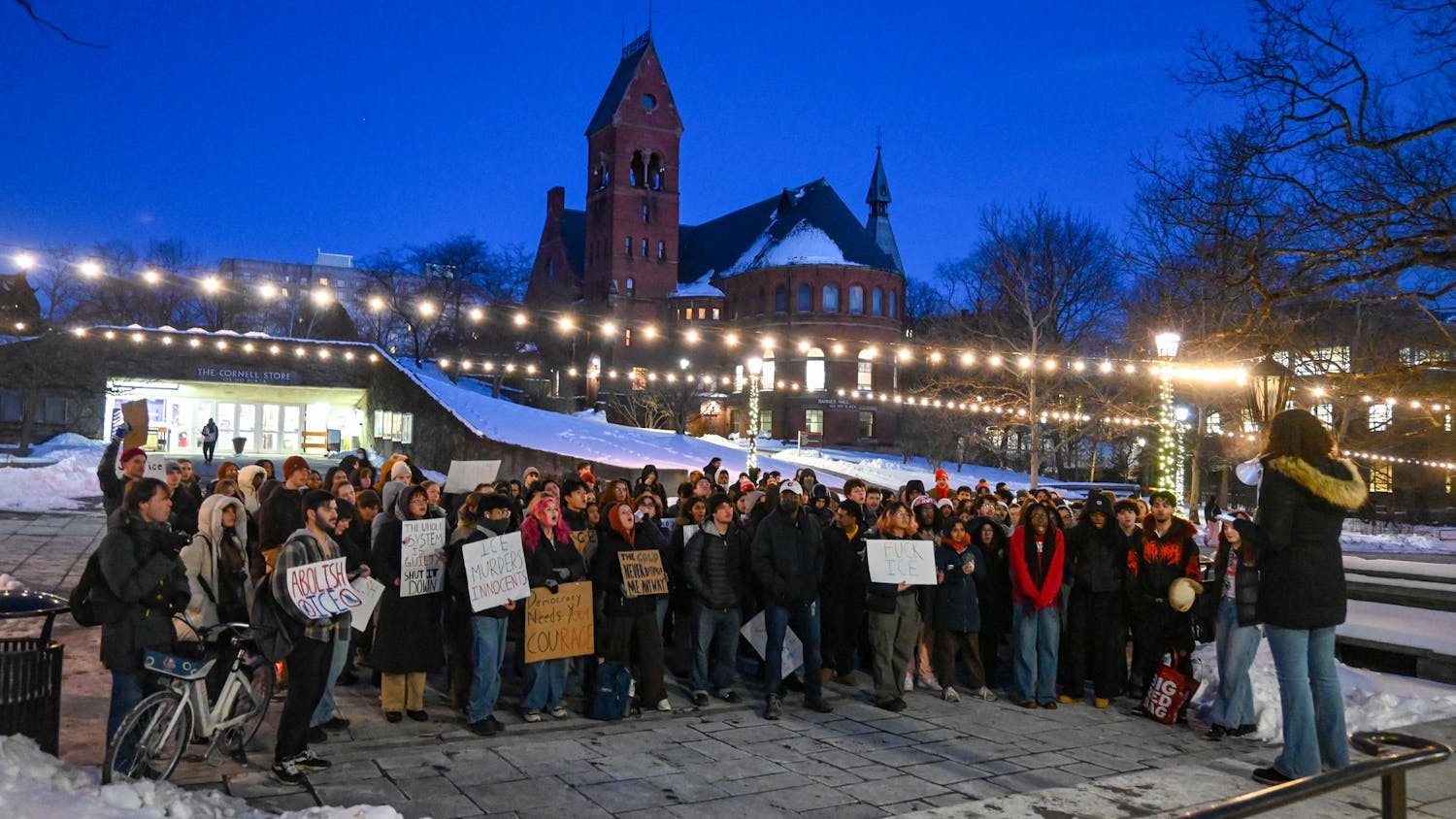Since receiving a $20,000 grant from the Student Assembly’s Infrastructure Fund in Dec. 2014, Take Back the Tap — a student outreach campaign that aims to spread awareness about the harmful effects of plastic bottle usage on the environment — has installed water bottle fillers in five new buildings across campus over the summer.
As of April 2013, 33 water bottle fillers, which operate with motion sensors to fill water bottles, were installed in campus buildings that included Bailey Hall, Mann Library, Olin Library and Schwartz Performing Arts Center, according to a University inventory on bottle filling stations.
Students can find the new fillers in Barton Hall, Helen Newman Hall, Bartels Hall, Kennedy Hall and Teagle Hall that were installed over the summer, according to former Take Back the Tap president Alexa Bakker ’15.
Take Back the Tap’s current president Susan McGrattan ’17 said the installments this summer were concentrated in athletic buildings due to a high demand for water in these locations.
McGrattan added that the campaign hopes to install at least one or two more water bottle fillers if there are sufficient funds left over from the grant.
The Infrastructure Fund, which supported Take Back the Tap’s grant, was created to support student projects and initiatives that improve infrastructure or facilities on Cornell’s campus, according to the fund’s website.
In Olin Library alone, the nine water bottle fillers have saved at least over 521,230 bottles of water as of Sunday morning. The single water bottle filler by Goldie’s Cafe in the Physical Sciences Building has saved over 191,923 plastic bottles by Sunday morning.
According to Bakker, the fillers have been strategically placed in locations “with the most student demand, student traffic and/or the thirstiest students.”
The purpose of the fillers is to eliminate plastic waste pollution and reduce the costs associated with bottled water. McGrattan explained that while recycling is a better option than throwing bottles in the trash, it is an intensive process that is much less efficient than simply eliminating the use of disposable water bottles altogether.
Using tap water instead of plastic water bottles would also save Cornell big bucks. While bottled water costs the campus community an estimated $640,000 per year, the same volume of tap water would cost only $1,000, according to Cornell’s Sustainable Campus website.
In addition to their efforts to build more filters for water fountains, Take Back the Tap also aims to host more outreach events this year.
In particular, McGrattan said the group aims to raise awareness about plastic pollution in the oceans and inform students that they can avoid plastic waste by bring their own water bottles and receiving free water from cafes around campus.
Emily Parish ’18, a Take Back the Tap member, said she hopes the organization will able to show students that they can help solve the critical issue of plastic bottle pollution by changing their daily habits.
According to Bakker, the water bottle fillers at water fountains have been well received by students.
“Though most of the members of Take Back the Tap are happy to just fill our water bottles in sinks or drinking fountains, we’ve found that the Cornell community has a very strong preference for bottle fillers and is less likely to use disposable plastic bottled water when bottle fillers are available,” Bakker said.
McGrattan added that the fillers “look fancy, so a lot of people get really excited by them.”
Student Organization Adds Water Bottle Fillers to Five Buildings
Reading time: about 3 minutes
Read More










